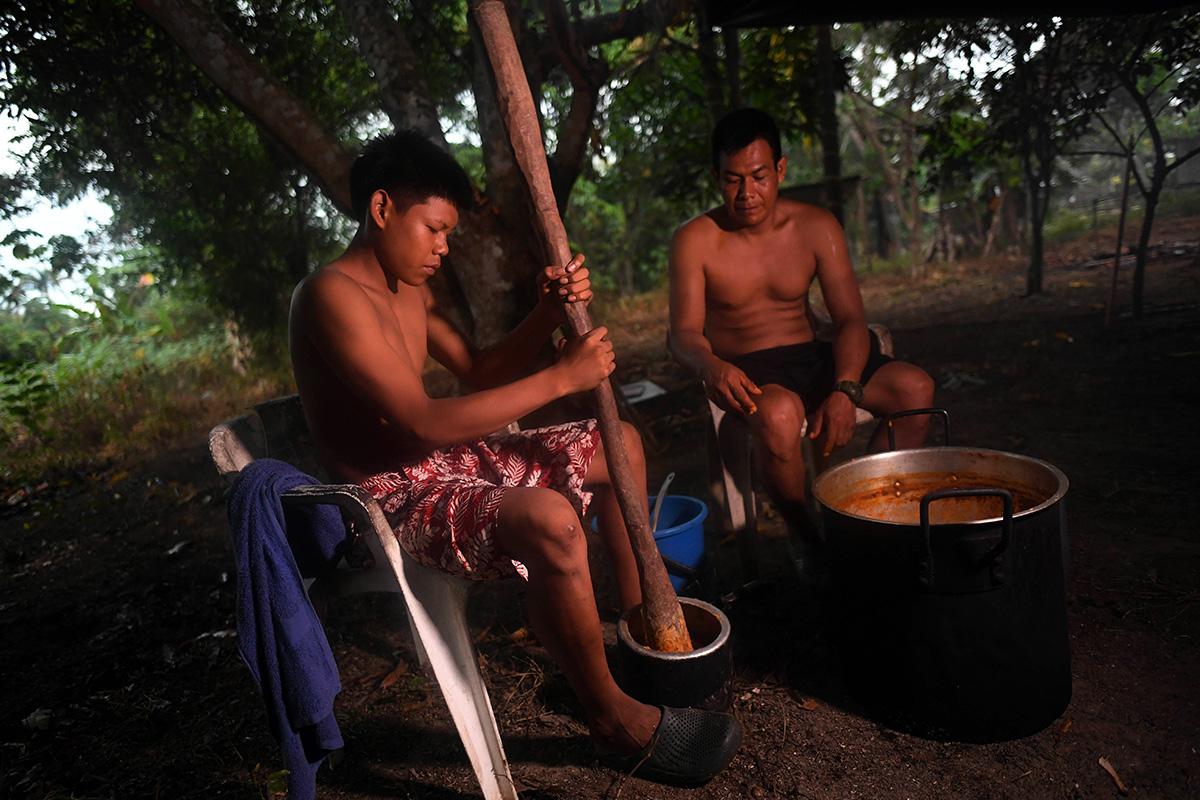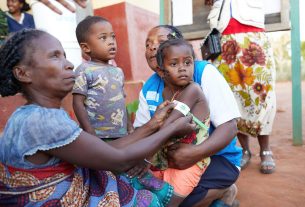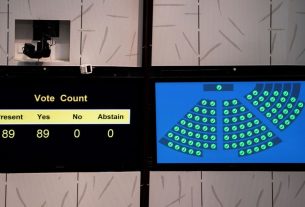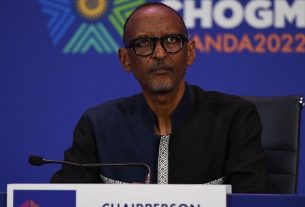“My dream is to finish my studies and join the navy so I can travel the world,” says Harold, 15, leafing through the pages of an atlas he received as part of an EU-funded project in Guaviare, Colombia.
He belongs to the Piratapuyo tribe and lives in an area historically affected by conflict, where several non-state armed groups fight for control.
In this context, being indigenous means living in the line of fire. Indigenous identity and resources are strongly linked to the land that armed groups often want to control to carry out illegal activities.
Children and adolescents are particularly vulnerable, at risk of being recruited and drawn into drug abuse and trafficking.
Even going to school is a challenge: the path is full of landmines, fighting between armed groups, and the risk of recruited. In 2022 alone, more than 268,000 children and adolescents faced violence or conflict-related risks, and over 8,000 children have been recruited since 2016.
The EU works with Diakonie and its local partners to provide protection and education activities for some 6,000 indigenous children and adolescents in 7 departments of Colombia heavily affected by the conflict. Because every child deserves access to education.
Life starts early at Harold’s house. At 5:30 a.m., he helps his father before school. They crush the “chontaduro” or “vegetarian egg,” the so-called peach palm fruit for its high nutritional content.
© European Union, 2023 (photographer: Camila Díaz)
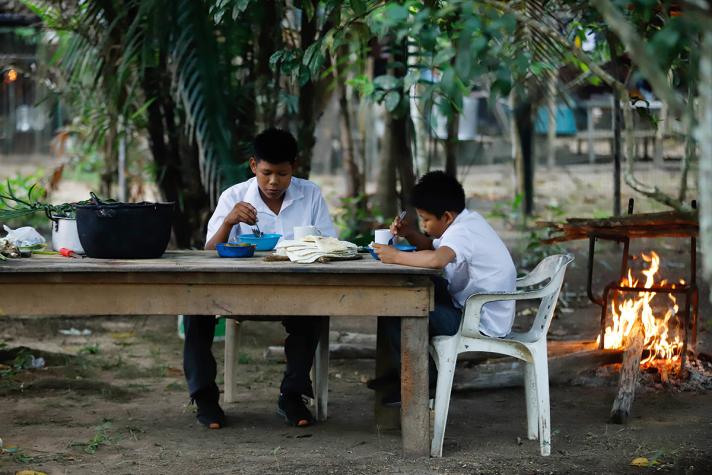
Harold and his younger brother Wencer eat breakfast together before going to their respective schools. They must walk for 2 hours to get to the only school where secondary education is available.
© European Union, 2023 (photographer: Camila Díaz)

The route to school is fraught with risks. Landmines, fighting between armed groups, or risk of recruitment. These issues cause school dropouts in the indigenous territories. But Harold loves going to school. For him, dropping out isn’t an option.
© European Union, 2023 (photographer: Camila Díaz)
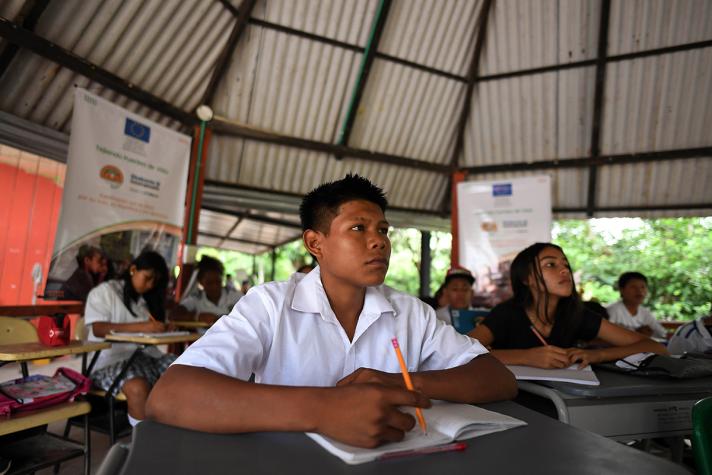
Last year, Harold had to drop out because his family couldn’t afford the supplies. “Violence and poverty are killing indigenous children’s dreams in Colombia. We are committed to help,” says Thomas Dehermann-Roy, head of EU humanitarian aid in Colombia.
© European Union, 2023 (photographer: Camila Díaz)
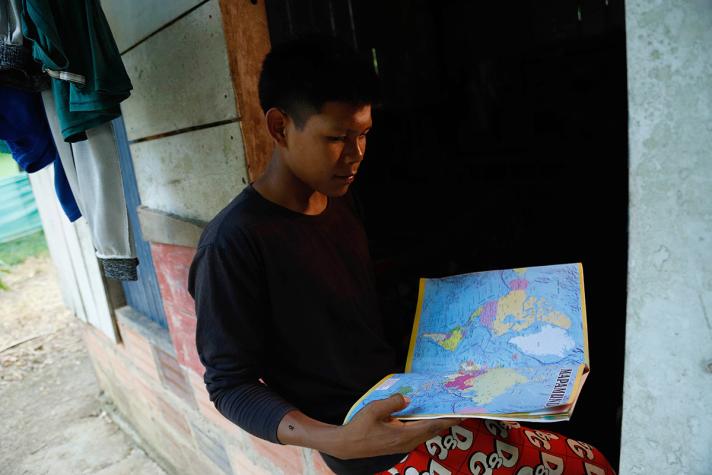
The EU funds Diakonie and its local partners to guarantee that indigenous students can attend school and receive the materials they need to carry out their school tasks.
© European Union, 2023 (photographer: Camila Díaz)
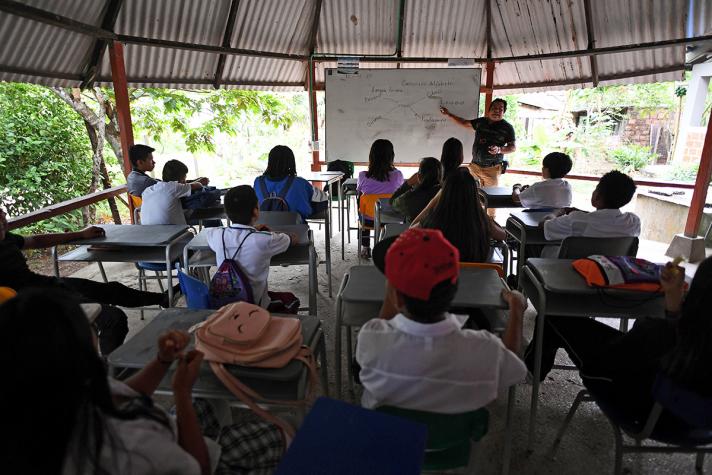
“With the EU funding, we are helping to create safe learning spaces where children and youth feel protected, learn more about their own culture, and express their feelings,” says Angela Mesa, Diakonie’s Coordinator.
© European Union, 2023 (photographer: Camila Díaz)
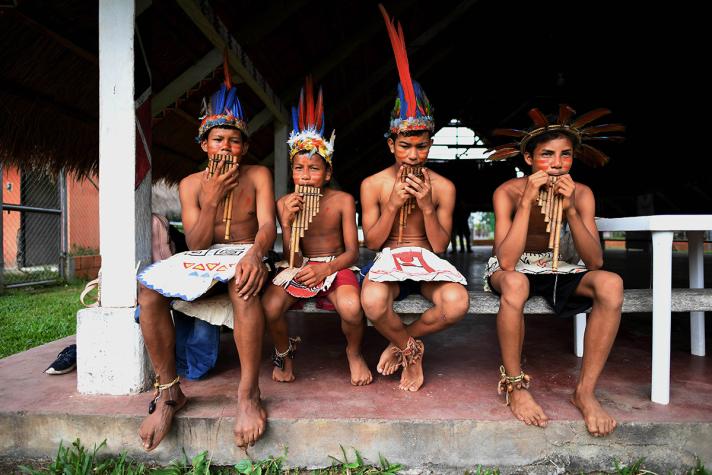
The EU-funded project also promotes cultural and sports activities to help indigenous communities preserve their customs and traditions. “What I like the most about school is sharing with my friends and learning new things about my culture,” says Harold.
© European Union, 2023 (photographer: Camila Díaz)

Harold also enjoys archery. This activity, also supported by the EU and its partners, strengthens cultural identity, and helps to keep children away from armed conflict. Harold’s school received supplies to support students beyond their classroom time.
© European Union, 2023 (photographer: Camila Díaz)
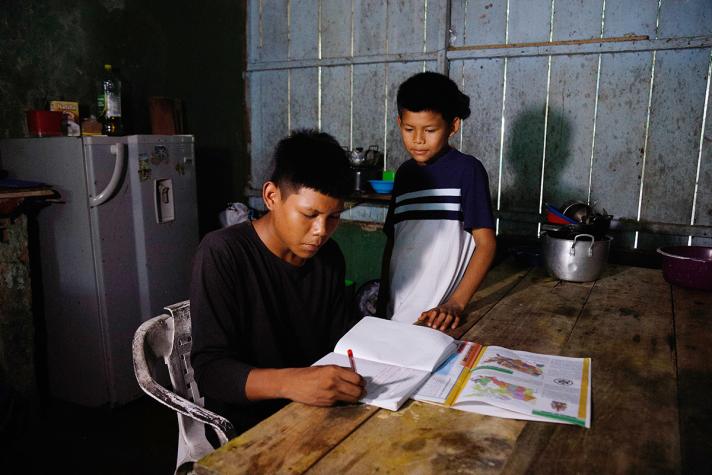
When school is over, Harold returns home to do his homework with his younger brother. Education gives children the opportunity to pursue their dreams. The EU is committed to continue supporting them with the resources they need to turn dreams into goals.
© European Union, 2023 (photographer: Camila Díaz)
